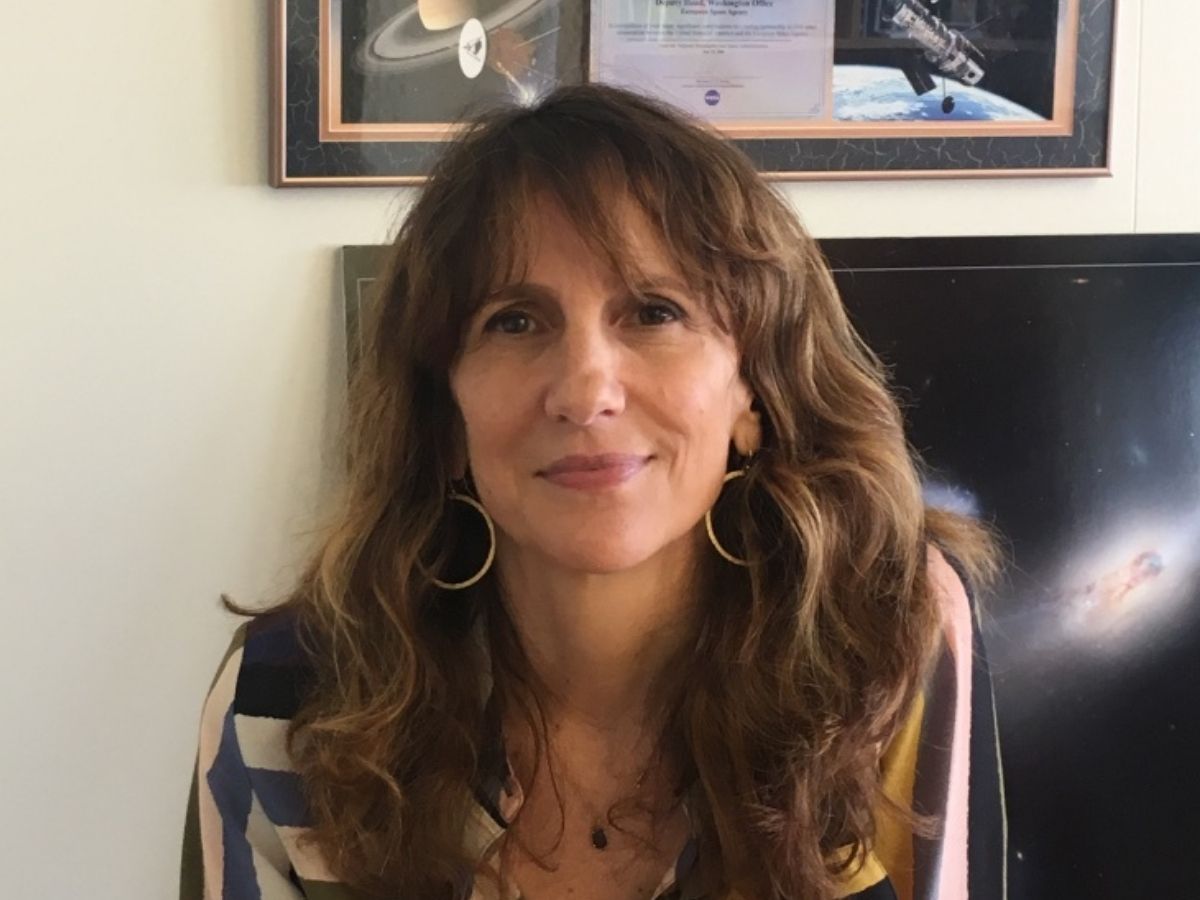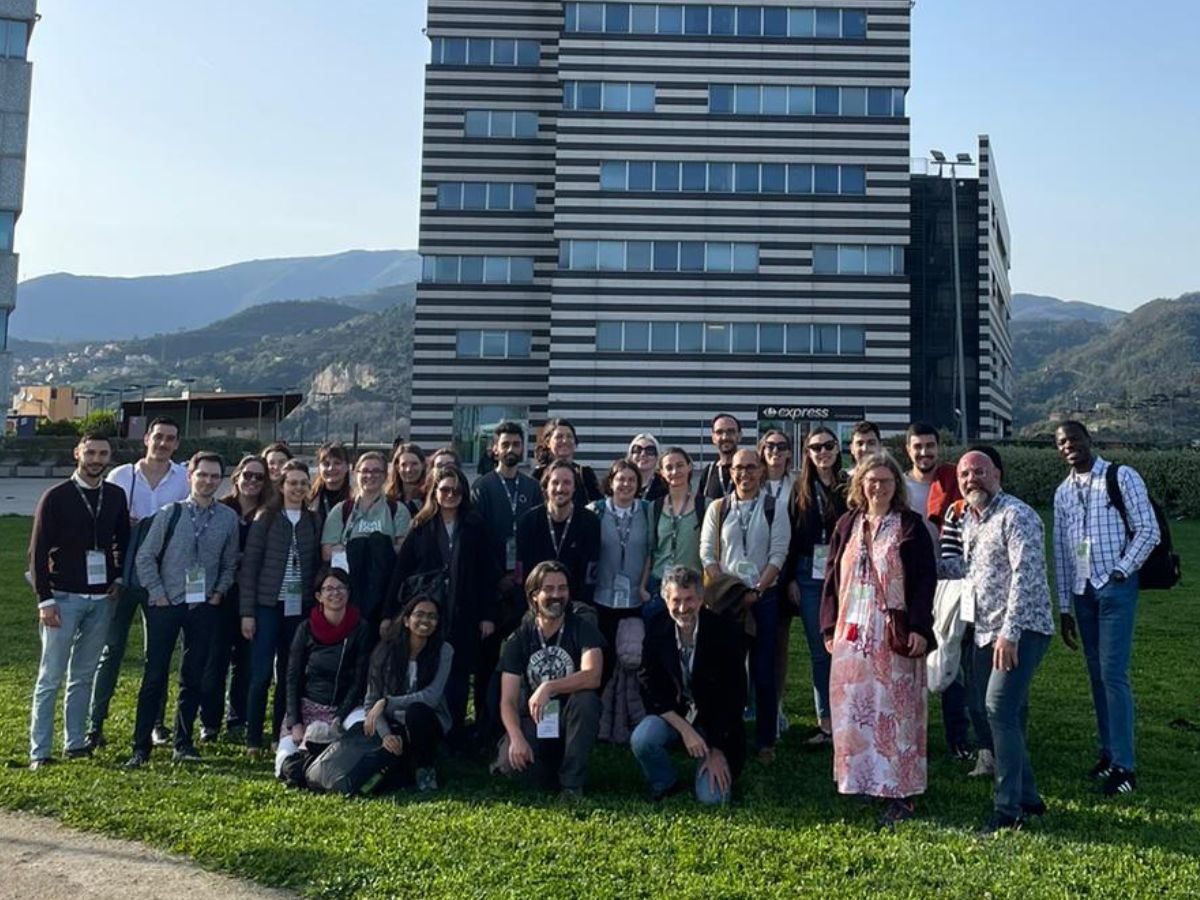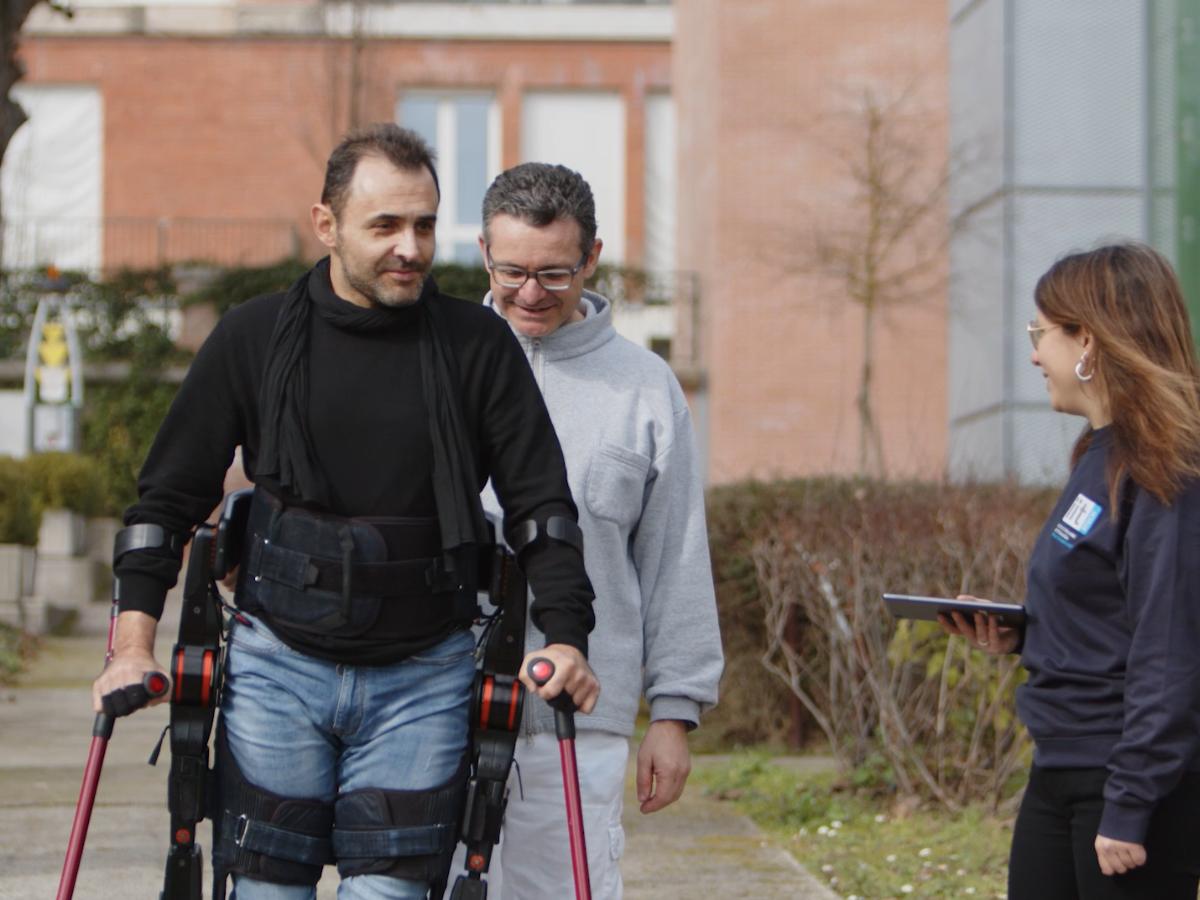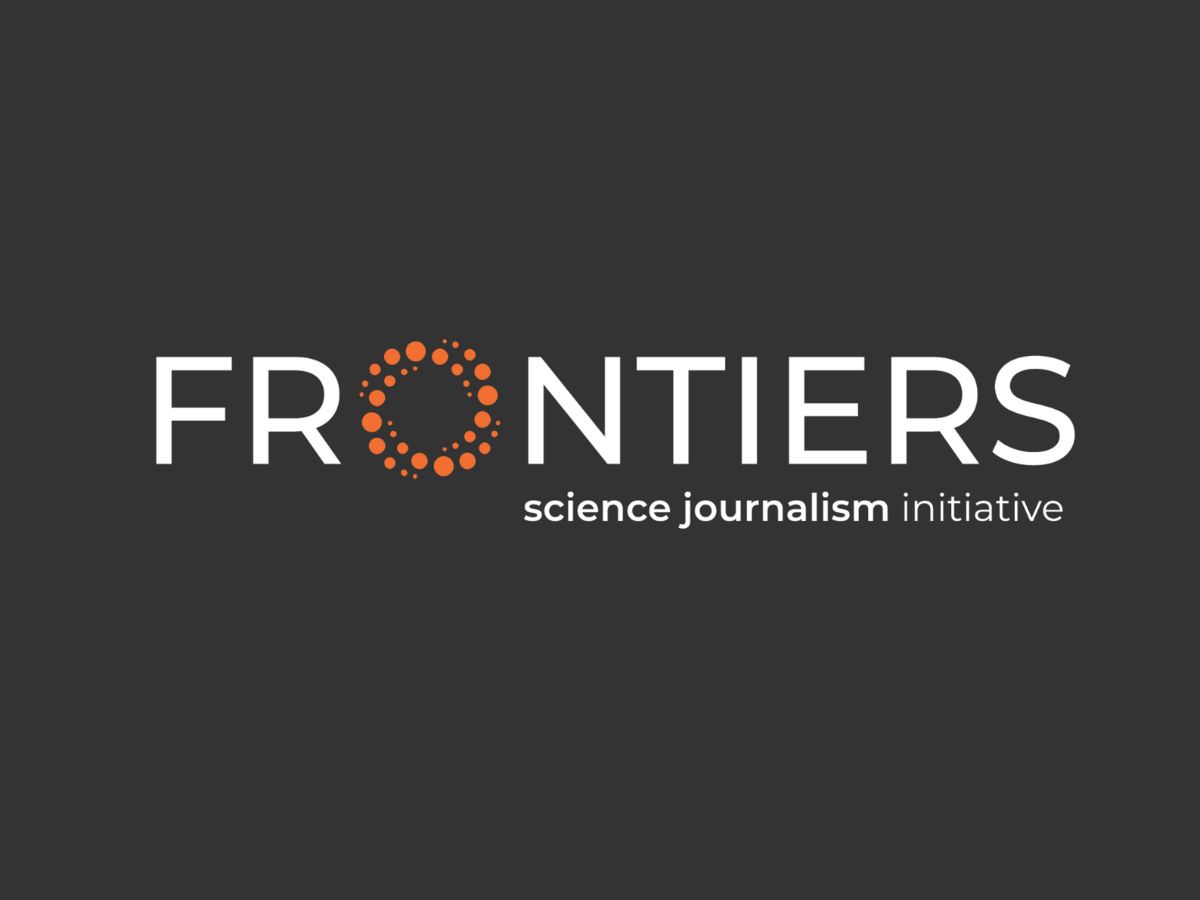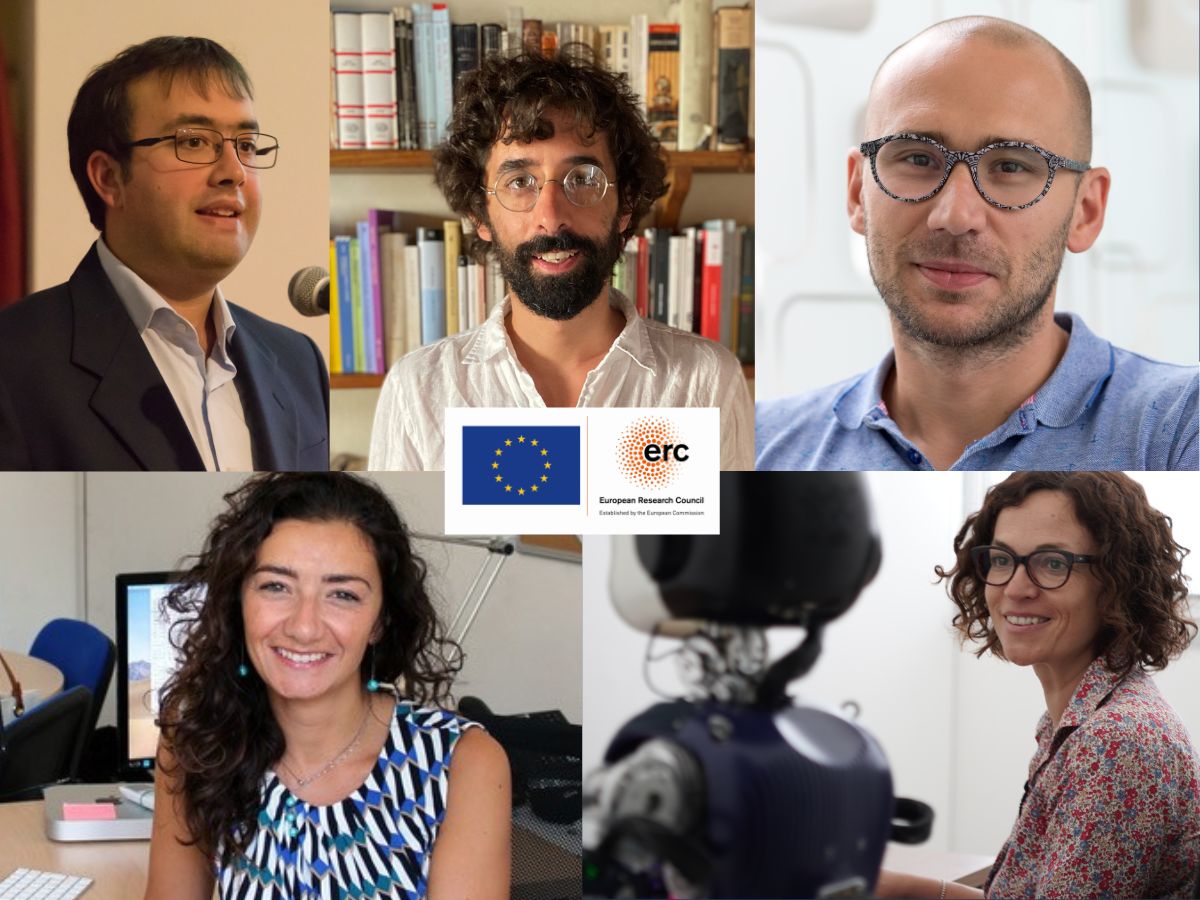Mathematics, enabling equal opportunities and the future
Who said that artificial intelligence is only about the more familiar world of robots or the analysis of large volumes of data? It is rather a discipline destined to bring multiple facets into our society. The way in which it is used and the codes that govern it depend on who is behind it, and therefore ultimately on mankind and the human view of the world. This concept was underlined by Ersilia Vaudo Scarpetta, Astrophysicist, Chief Diversity Officer at ESA and Curator of the XXIII International Milan Triennale Exhibition, who will be a speaker at the event ‘Visions of the future. AI and robotics: the interchange between science and society’ organised by IIT for G20 on 29 July in Genoa. “It is important for AI to look to the future and not just rely on a past that risks being steeped in prejudice”, said Ersilia Vaudo Scarpetta at OpenTalk; “we should avoid the unwitting and silent development of bad practices by means of cutting-edge procedures. And we have to watch out for algorithms based on flawed data patterns”.You are Chief Diversity Officer at ESA. What is your role? Is the attention dedicated to this subject equal all over Europe?In Europe there is a great deal of attention to diversity in the world of work. We have begun to understand not only its symbolic importance, but also the value it represents in terms of increased economic performance and capacity for innovation. The centrality of the issue of diversity for a company also reflects the type of values it incorporates, and the younger generations are increasingly attentive to the social stance of the company in which they wish to work. A few years ago ESA felt it necessary to increase the diversity of its talent by focusing on aspects such as geographical origin, gender, age, background and disability, ensuring a working environment that values inclusion. Much of my work is focused on ensuring that STEM subjects and aerospace careers become attractive to a much more diverse pool than they are now. When I was appointed Chief Diversity Officer, for example, applications from women were 16% of the total, today we are up to 28%. My goal is that ESA will no longer need a Chief Diversity Officer.It certainly doesn’t seem like a simple process.The more successful the organisation, the more difficult it is to implement change. People ask “why do we need more diversity? We are an organisation of excellence, what’s the problem?” And that’s the point: opening up to diversity is a challenge. And only when the change is taking place do you realise the transformation that has occurred and the value that it represents. But first of all, a cultural change is needed, and a genuine commitment from management to move in this direction.But there is a big difference between diversity and inclusion. You yourself said “diversity is being invited to a party, inclusion is being invited to dance”. Is it only through effective inclusion that diversity can be a point of strength professionally?Absolutely. Inclusion at the workplace means modern staff rules, it means avoiding any form, even implicit, of discrimination, it means creating a climate in which you are free to express yourself and be yourself. Diversity without attention to inclusion remains a question of numbers and does not create the desired value.On Thursday 1 July, the project ‘Il Cielo itinerante’ (The Sky on Tour) began, a collaboration between yourself and Alessia Mosca, Secretary General of the Italy-ASEAN (Association of Southeast Asian Nations) Association and Adjunct Professor of EU Trade Policy at Sciences Po (Paris Institute of Political Studies). A van with four telescopes and Space 42 promoters’ commitment to bringing boys and girls closer to scientific subjects, with stop-overs in the cities of Italy with the greatest problems of educational poverty. What does the project consist of?With ‘Il Cielo itinerante’ we wanted to take science, along with a telescope on a minibus, to places where it doesn’t usually go: areas of great social hardship and educational poverty. With the July tour, we will visit 11 locations across southern and central Italy. We will enable boys and girls to play with science, ‘getting their hands dirty’ and observing moons and planets in the darkness of summer nights. We hope to kindle their curiosity. We will also create a platform with which we will involve all the boys and girls who have taken part in the tour, to put them in touch with each other and to offer regular Science sessions online, ensuring the project’s continuity over time. You recently told Corriere della Sera that “equal opportunities begin with inclusion in mathematics starting from primary school”. Why do you believe so strongly in the importance of introducing girls to basic scientific and technological skills? To the STEM language?According to the latest figures from the World Economic Forum, it will take 257 years to achieve gender equality, and the year before the analysis of data revealed that it would take 212 years, and so not only is there no progress, but we are actually going backwards. At the heart of this regression, according to the WEF, there is the widespread and systematic absence of women in STEM fields, which are the areas offering the highest employment rate, greatest economic power and higher average salaries, and which are above all the professions of the future. A greater participation of girls in STEM subjects would be the way forward for a real revolution in gender equality, because these are the locations where the future is imagined and made possible. Inclusion in mathematics, right from primary school, is therefore a critical step in building a pathway to real equality of opportunity. Quantitative literacy will be fundamental in tomorrow’s world and no-one should be left out.This year the Golfo-Mosca law reaches its first decade. A 2019 analysis by Buone Notizie (‘Good News’) dedicated to the 40 largest companies in Piazza Affari listed on the FTSE MIB index showed that laws had been followed over this first decade, and more specifically, that the average percentage of women on boards of directors had increased more than expected, but this positive result was not replicated in the top positions. In general, although the data shows an improvement compared to the past, it reveals the continuity of a specific trend. Work-life balance and cultural prejudice are hard to eradicate. The authors of the book ‘Per soli uomini. Il maschilismo dei dati’ (For Men Only. The masculinity of statistics) said on OpenTalk that a real acceleration would require “strong cultural shifts on the part of men and women” and even “a forced correction”. In addition to the difficult task of increasing awareness in society, as you yourself are doing, commitment on the part of the institutions is also necessary. Do you agree?Precisely because the world is clearly not moving towards gender diversity and inclusion, I agree that clear measures are needed in addition to activities aimed at increasing awareness. I am sure that no-one really believes that there are few women in top positions because they are less skilled. In this regard, I would like to mention all those associations such as the Bracco Foundation that are involved in the promotion of operations such as ‘100 esperte’ (100 female experts), to promote outstanding female personalities in various fields. As a physicist, I think very pragmatically, reflecting the laws of dynamics. If you don’t impart the necessary force for change, there can be no acceleration, you just stand still.Laurence des Cars is the new Director of the Louvre Museum, the first woman in 228 years. From 1 October, Professor Maria Leptin, former director of EMBO (European Molecular Biology Organization), will be the new president of the European Research Council (ERC). You are the curator of the 22nd International Milan Triennale Exhibition… How important is it, with a view to normalising female leadership, for the new generations to also see women in positions of power?Normalisation is very important. The more diversity becomes routine, the easier it will be to get rid of stereotypes and prejudices. We are in a moment of transition, something is starting to happen, so we welcome events, articles and awards to retain a high degree of attention and commitment to this issue. The time has not yet come, alas, to allow ourselves the luxury of considering the subject as being totally resolved.

